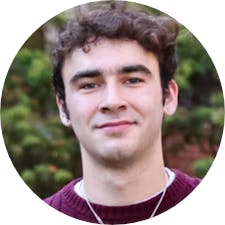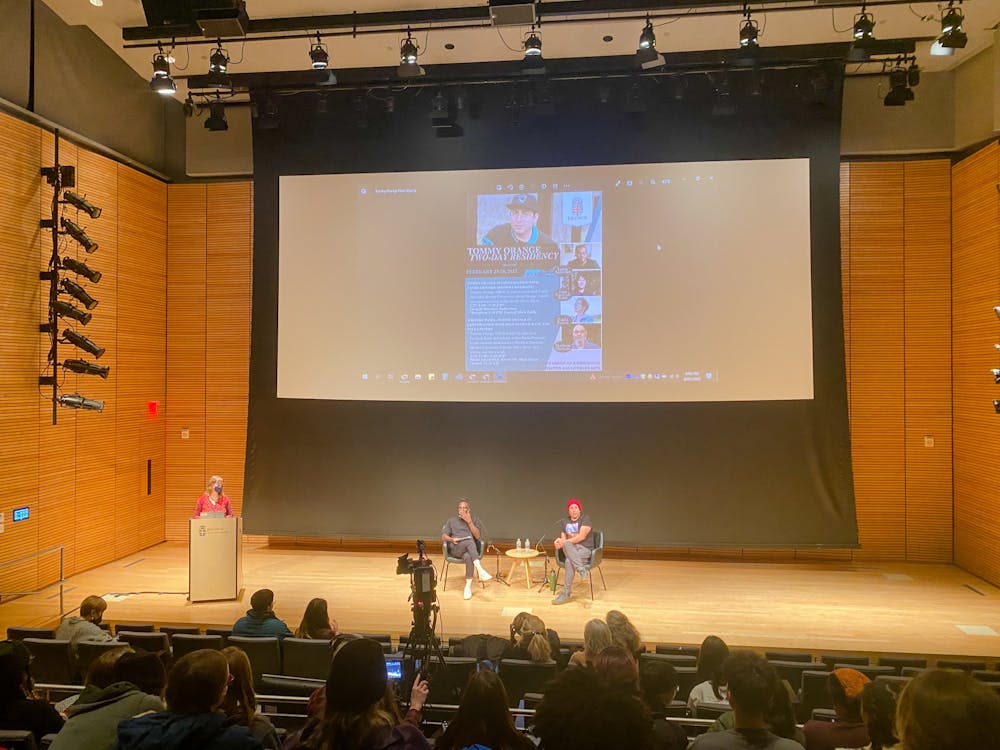Tommy Orange, author of “There There,” spoke about the challenges faced by Indigenous communities regarding identity and representation at an event hosted by the Native American and Indigenous Studies Initiative and Department of Literary Arts on Monday, Feb. 27.
Orange is an Oakland resident and member of the Cheyenne and Arapaho Tribes of Oklahoma. His debut novel “There There” follows Indigenous characters living in Oakland as they confront the meaning of identity in urban spaces.
The story is inspired by Orange’s personal experiences and the lack of representation he found in mainstream stories growing up. “Literature did not represent me or my experience at all,” he said. “The limited amount that I was exposed to at the time was very reservation based.”
“Nobody was talking about the urban Native experience,” Orange added.
Monday’s event featured a conversation between Orange and Lanre Akinsiku, visiting lecturer in literary arts. “What I admire so much about (Orange’s) work is the way that he challenges us to think about storytelling as an endeavor with the highest possible stakes,” Akinsiku said.
Issues of authenticity in both literature and Indigenous Peoples’ understandings of self were central to the conversation. “The guidelines for authenticity ... are based on something that's completely false and has been misrepresented for so long,” Orange said. “It's almost impossible to undo the way people think.”
“Authenticity is so hard to get when the only version of authenticity that the outside community gives you has to do with some old phenotypical headdress," he added.
Orange and Akinsiku were questioned by audience members about the impact of generational trauma on Indigenous communities, a central theme in “There There.” Orange likened inheriting pain to inheriting wealth — a “manifestation of history,” he said.
“Generational trauma, historical trauma — it's about reverberation and feeling time,” Orange added.
As part of his two-day residency, Orange will participate in a writers’ panel on Tuesday, Feb. 28. The panel will feature other Indigenous authors, including Joan Naviyuk Kane and Paula Peters and will be moderated by Professor Matthew Shenoda, chair of the Department of Literary Arts.
In an email to The Herald, Shenoda shared his excitement about the events. “As a contemporary Native writer, Orange’s writing, presence and engagement are essential in making a space for people to articulate their position and relationship to our society from the point of view of their own experiences,” he wrote.
“It’s one thing to acknowledge historical atrocities or do things like issue a land acknowledgment and another to make space for Native Peoples to articulate their own visions, desires and positions in a self-determined manner without the interpretative lens of ‘study,’ ” Shenoda added
Asia Cofield ’23, who attended Monday’s event, recalled that “There There” was the first book written by an Indigenous author that she was assigned to read as part of a class assignment.
“This event was really exciting for Native students. And so it's also encouraging to see that there are so many non-Native students that are interested in Tommy Orange and his work,” she said. “I hope that we continue to have conversations like this on campus.”

Ryan Doherty is the managing editor of digital content and vice president of The Herald's 135th editorial board. He is a junior from Carmel, NY who is concentrating in chemistry and economics. He previously served as a university news and science & research editor, covering faculty and higher education.





